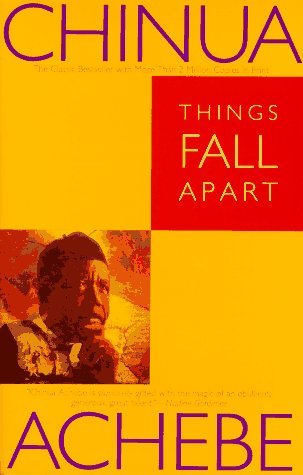Novel touches on African colonialism
Achebe delves into the complex layers of both sides of history regarding colonialism

Achebe captures the complexities of the effects of colonialism.
April 15, 2021
As colonialism and all of its implications have recently come up in current discourse, I think it is important to educate ourselves on how adversely countries like Nigeria were affected by the practice. The topic of colonialism can be a tough one to fully understand, given the level of complexity that came along with the reverberating effects it had on different communities.
As a Kenyan American, I have seen how devastatingly exhausting another country’s resources can be, especially on the least affluent. For this reason, I love reading books that help me understand the African culture that was lost post-colonialism.
Being able to comprehend the deep-rooted effects of colonialism is almost impossible, but Chinua Achebe’s novel “Things Fall Apart” bravely delves into the intense complexity with the compelling fictional story of the stubborn Nigerian, Okonkwo.
Achebe wrote the novel condemning neither the Nigerian culture nor the European culture, which makes it vastly different from other books detailing the divide brought on by colonialism. Achebe’s talent in creating a compelling story helps to humanize the situation and prepares readers of all different backgrounds to empathize and understand.
Achebe prompts his readers to see the human nature in the Igbo people throughout the novel as we follow their daily lives. He also forces us to come to terms with Okonkwo’s decisions.
Even though he brutally beats his wife, kills a boy that calls him father and stubbornly refuses to change his ways, we can still find ourselves sympathizing with Okonkwo as we see his struggle between the Igbo’s respectable perception of him and his pride.
Achebe weaves a story of the rich Igbo culture and how it was destroyed by European colonialism. Although the British did bring new, helpful technological and medical advancements, they also brought their laws, religion and ways of thinking.
From both sides, it is easier to consider the concept of colonialism as black and white — the British seeing the Nigerians as savages, and the Nigerians seeing the British as oppressors.
However, Achebe compels us to set our embedded preconceptions aside and see the humanity in both parties. He exposes the intricacies — revealing that the situation is not as black and white as it seems.
Achebe has deepened my understanding of colonialism as I see it in Nigeria, and even in my home country of Kenya.
Through the use of his believable characters and mesmerizing storytelling, Achebe achieves his goal to not only narrate a world beyond our everyday understanding but show us that if we take the time to look closely we can see the complex nature of humanity in all corners of the world. This novel has helped to take the first step toward understanding colonialism.
If you are interested in exploring the concepts of colonialism, consider checking out “Things Fall Apart”, or any of Achebe’s other works like “No Longer at Ease” and “Devta Ka Baan”.











